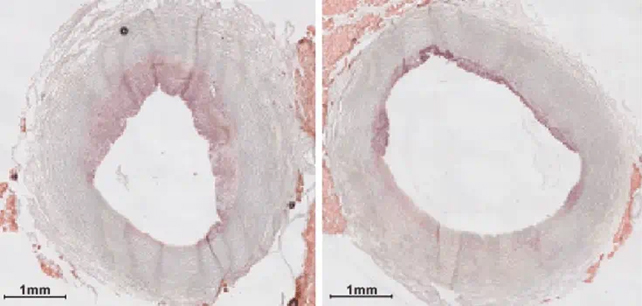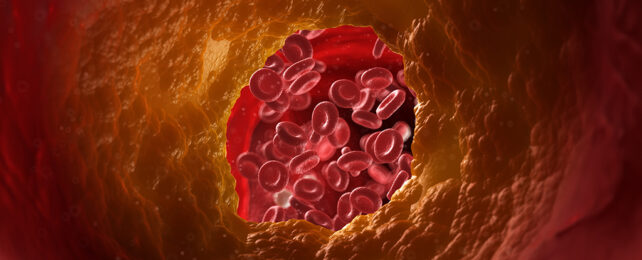To minimize the risk of cardiovascular disease, our arteries need to be clear and inflammation-free, and scientists have developed a new technique that uses carbon nanoparticles to fight the buildup of dangerous plaques.
Plaques congregate inside these blood flow channels from fatty substances like cholesterol, dead and damaged cells, and other deposits, thickening and stiffening the artery walls in a process known as atherosclerosis.
Using nanoparticles thinner than human hair, loaded with a drug to activate immune cells, a team led by researchers from Michigan State University and Stanford University was able to confirm their precisely targeted therapy led to substantial plaque reduction in pigs with atherosclerosis.

"Using PET [positron-emission tomography] scans, we were able to measure the effects of the therapy on pig arteries," says biomedical engineer Bryan Smith of Michigan State University.
"We showed in animal models such as pigs that we can decrease the levels of inflammation in the plaque based not only on this clinically used PET imaging technique, but also by molecular assays."
The nanoparticle invasion reactivates a process called efferocytosis, where dead or damaged cells that contribute to the plaques are cleared out from the arteries by the immune system. Over time, for a number of reasons, efferocytosis can be overwhelmed by plaque build-up.
The same efferocytosis boost technique has previously been shown to be successful in mice, and there are some promising developments in this latest research. First, the team scaled up the nanoparticle delivery for pigs – showing they could produce enough of these tiny operators to work in humans.
Second, the treatment was shown to be targeted enough that there was no noticeable collateral damage inside the arteries. Potentially, this clean-up method can destroy healthy cells, leading to anemia – but there were no signs of that here.
"We saw none of the side effects that would have been anticipated had the therapy not been precisely targeted," says Smith.
We know that atherosclerosis and the cardiovascular problems that it leads to – including sudden heart attacks – are one of the biggest causes of death in many countries, so there's an urgent need to reduce risk levels.
Cleaning out plaque buildup is one of the key ways of doing that. Changes in diet and getting more daily exercise have also been shown to be beneficial when it comes to preventing and slowing down atherosclerosis.
We may soon have another option for tackling this major problem. The research team is now investigating ways to prepare these nanoparticle agents for human clinical trials.
"These results collectively highlight the feasibility of advancing 'trojan horse' nanoparticles further toward the clinic," write the researchers in their published paper.
The research has been published in Nature Communications.
